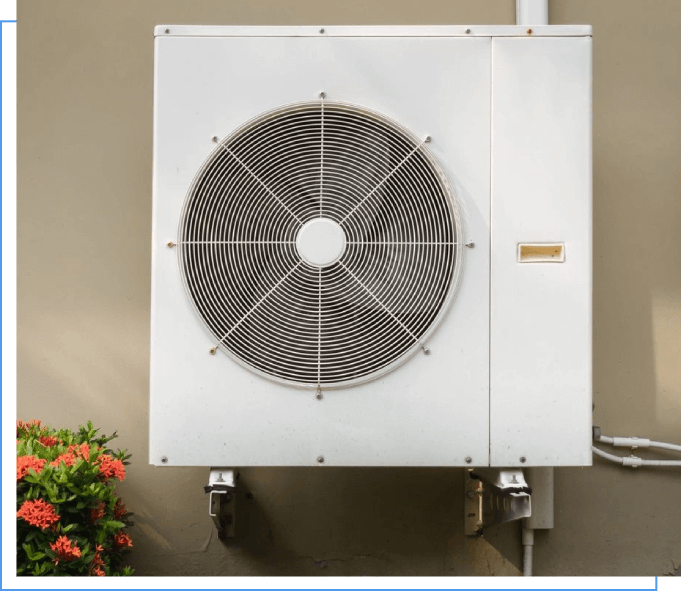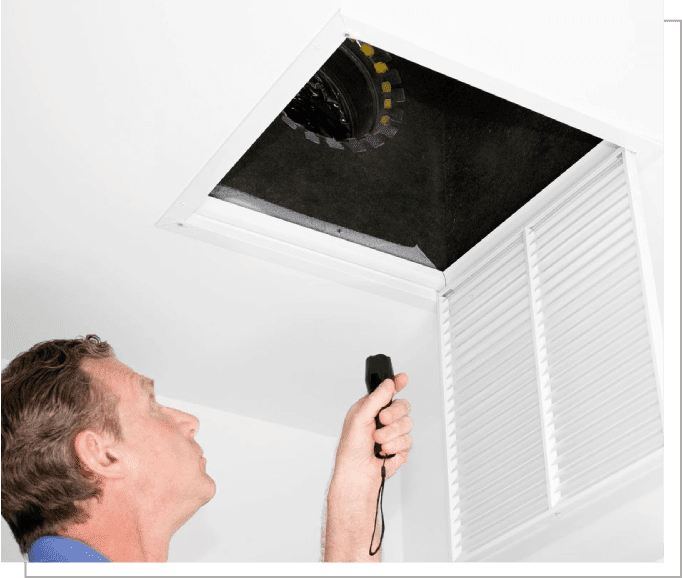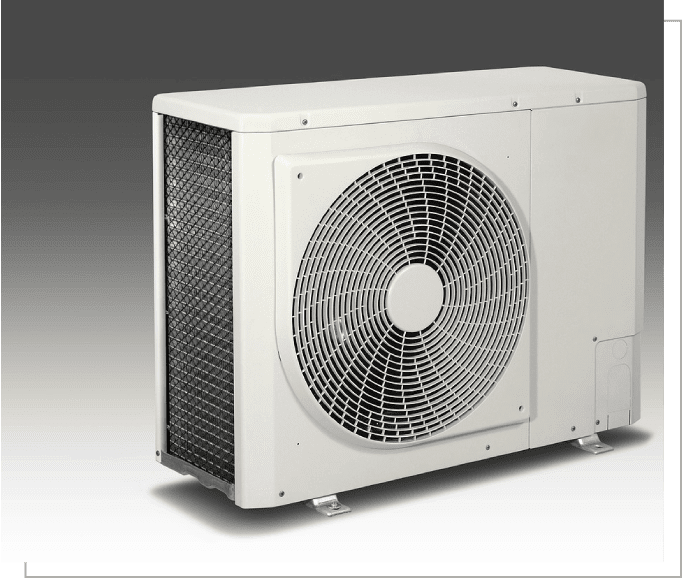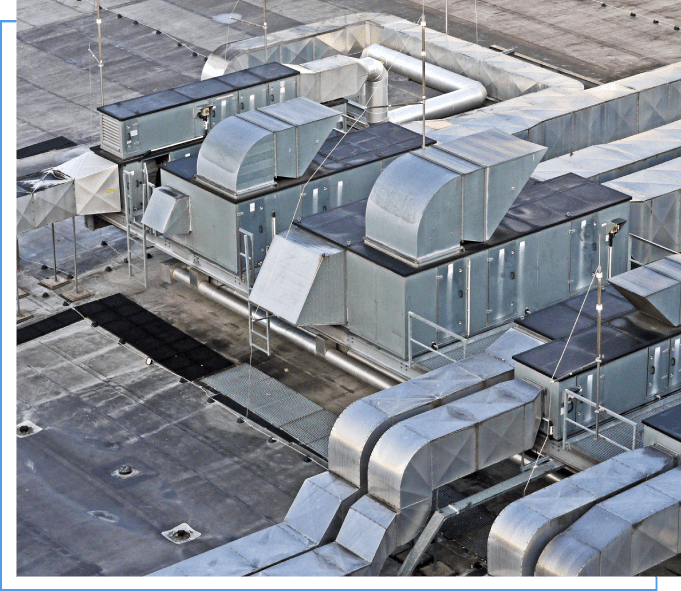
COOLING INSTALLATION
What factors go into the installation of an air conditioning system in your home?
Several factors influence the installation of an air conditioning system in a home, including:
- Home Size and Layout: The square footage and layout of your home determine the size and capacity of the AC unit needed to effectively cool the space.
- Insulation and Energy Efficiency: The quality and amount of insulation in your home impact how well it retains cooled air, influencing the size and efficiency requirements of the AC system.
- Climate: Regional climate conditions affect the cooling load requirements. Hotter climates may require higher-capacity systems to maintain indoor comfort.
- Existing Ductwork: The condition and layout of existing ductwork, if applicable, impact the installation process and may require modifications or upgrades.
- Type of Air Conditioning Unit: Options include central air conditioning systems, ductless mini-split systems, PTACS, and more. Each with different installation requirements and costs.
- Energy Efficiency Ratings: Choosing an energy-efficient system with a high SEER (Seasonal Energy Efficiency Ratio) rating can impact upfront costs and long-term energy savings.
- Zoning and Thermostat Controls: Options for zoning systems and programmable thermostats affect comfort control and energy efficiency, requiring careful installation planning.
- Electrical Requirements: Proper electrical supply and capacity must be assessed to ensure the AC system operates safely and efficiently without overloading circuits.
- Permitting and Regulations: Local building codes, permits, and regulations govern the installation process, ensuring compliance with safety and environmental standards.
- Professional Installation: Hiring qualified HVAC professionals ensures proper sizing, installation, and system performance, maximizing the efficiency and longevity of the AC system.
Considering these factors and consulting with Tee’s HVAC helps ensure the installation of an air conditioning system that meets your home's specific cooling needs efficiently and effectively.
For accurate cost estimates and expert installation services tailored to your specific cooling needs, trust Tee’s HVAC to enhance your home's comfort efficiently.
Contact us at (914) 393-9906 to schedule an appointment.
What are some factors to consider in choosing ductless air conditioning or traditional air conditioning?
Choosing between ductless air conditioning (mini-split systems) and traditional central air conditioning involves considering several factors:
Ductless Air Conditioning (Mini-Split Systems):
- Installation Flexibility: Ductless systems are ideal for homes without existing ductwork or where adding ducts is impractical or costly. They consist of an outdoor compressor unit and one or more indoor air-handling units mounted on walls, making them versatile for various room configurations.
- Energy Efficiency: Ductless systems often have higher SEER (Seasonal Energy Efficiency Ratio) ratings compared to traditional AC units. They allow for zone control, meaning you can cool specific areas as needed, potentially saving on energy costs by not cooling unused rooms.
- Cost: Initial installation costs for ductless systems can be higher than traditional AC due to the need for multiple indoor units and specialized installation. However, savings may be realized over time through energy efficiency and reduced ductwork expenses.
- Space Efficiency: Ductless systems take up less space than traditional AC units and provide more flexibility in interior design since they require only a small hole in the wall for installation.
- Quiet Operation: Ductless systems typically operate quieter than traditional central AC units, as the noisy compressor unit is located outside, and the indoor units are designed for minimal noise.
Traditional Central Air Conditioning:
- Whole-House Cooling: Central AC systems use ductwork to distribute cooled air throughout the entire home, providing consistent temperature control across multiple rooms.
- Home Value: Central AC systems are standard in many homes and may contribute to property value. They offer a centralized cooling solution and can be integrated with existing HVAC systems.
- Initial Cost: While the initial installation cost of central AC may be lower than ductless systems, expenses can vary based on home size, existing ductwork, and system efficiency.
- Maintenance: Central AC systems require regular maintenance of ducts and filters to ensure efficient operation and air quality. Poorly maintained ducts can reduce efficiency and lead to higher energy bills.
- Integration: Central AC systems can integrate with existing HVAC systems, including furnaces, heat pumps, and air purifiers, providing comprehensive climate control solutions year-round.


Considerations for Both Types:
Tee’s HVAC will help you evaluate these factors and determine the best cooling solution tailored to your home's specific needs and preferences.
For a consultation and accurate cost estimates for your specific cooling needs, trust Tee’s HVAC to enhance your home's comfort efficiently. Contact us at (914) 393-9906 to schedule an appointment.
How much does it cost to install a new air conditioning system?
The cost to install a new air conditioning system can vary widely depending on several factors, including the type of system, home size, existing ductwork, and local labor rates. Here's a general overview of potential costs:
- Central Air Conditioning System: For a typical central AC system installation in a medium-sized home (approximately 2,000 square feet), costs can range from $7,000 to $10,000 or more. Factors influencing cost include the SEER rating (efficiency), brand, and complexity of installation (such as ductwork modifications).
- Ductless Mini-Split System: Installing a ductless mini-split AC system generally costs between $7,000 to $10,000 or more, depending on the number of indoor units, size of the home, and complexity of installation. Each indoor unit can range from $1,500 to $2,500 or more.
- Additional Factors: Other factors that can affect installation costs include:
- Installation Costs Breakdown: The installation costs typically cover equipment, labor, permits (if required), and any necessary electrical or ductwork modifications. It's essential to get detailed quotes that include all these aspects to accurately estimate total costs.
- Additional Considerations: Additional costs may include removal and disposal of old equipment, upgrades to thermostats or indoor air quality components, and potential rebates or incentives for energy-efficient systems.

Pre-installation Evaluation
Before installation, Tee’s HVAC will conduct an energy audit to determine your home's energy requirements. This will ensure the selection of the appropriate system size and type.
We will assess your home's specific needs, recommend appropriate systems, and provide detailed cost estimates based on a thorough evaluation of your home and existing HVAC setup. Call
(914) 393-9906 to set up a consultation.
How do I know when it is time to replace my air conditioning system?
Knowing when it's time to replace your air conditioning system involves considering several factors:
- Age of the System: Air conditioning systems typically last around 10-15 years with proper maintenance. If your system is approaching or exceeding this age range, it may be less efficient and more prone to breakdowns, indicating it is nearing the end of its lifespan.
- Frequent Repairs: If you find yourself repeatedly repairing your AC system or facing major repairs that are costly, it might be more economical to invest in a new system rather than continuing to repair an older one.
- Energy Efficiency: Older AC units are generally less energy-efficient than newer models. If you notice a significant increase in your energy bills despite normal usage patterns, upgrading to a more efficient system could save you money in the long run.
- Inconsistent Cooling: If your AC struggles to maintain consistent temperatures throughout your home or if certain rooms feel noticeably warmer or cooler than others, it may indicate that your current system is no longer capable of meeting your cooling needs effectively.
- R-22 Refrigerant: If your AC system uses R-22 refrigerant (also known as Freon), which is being phased out due to environmental concerns, it may become increasingly expensive and difficult to repair as supplies diminish. Upgrading to a system that uses newer, environmentally friendly refrigerants can be a more sustainable choice.
- Strange Noises or Odors: Unusual noises such as grinding, squealing, or banging, as well as strange odors when the AC is running, can indicate mechanical issues or mold growth within the system, suggesting it may need replacement.
- Humidity Issues: If your AC no longer effectively controls humidity levels in your home, leading to excessive moisture or discomfort, it may be a sign that the system is no longer functioning properly.
- Home Renovations or Additions: If you've made significant changes to your home, such as adding more square footage or rooms, your current AC system may no longer be adequately sized to handle the increased cooling demands.
- Comfort and Safety: Ultimately, if your current AC system consistently fails to provide the comfort, reliability, and safety you expect despite regular maintenance, it may be time to consider upgrading to a new system that better meets your needs.
Contact Tee’s HVAC at (914) 393-9906 to assess the condition of your current AC system and determine whether repair or replacement is the best course of action based on your specific circumstances and preferences.
